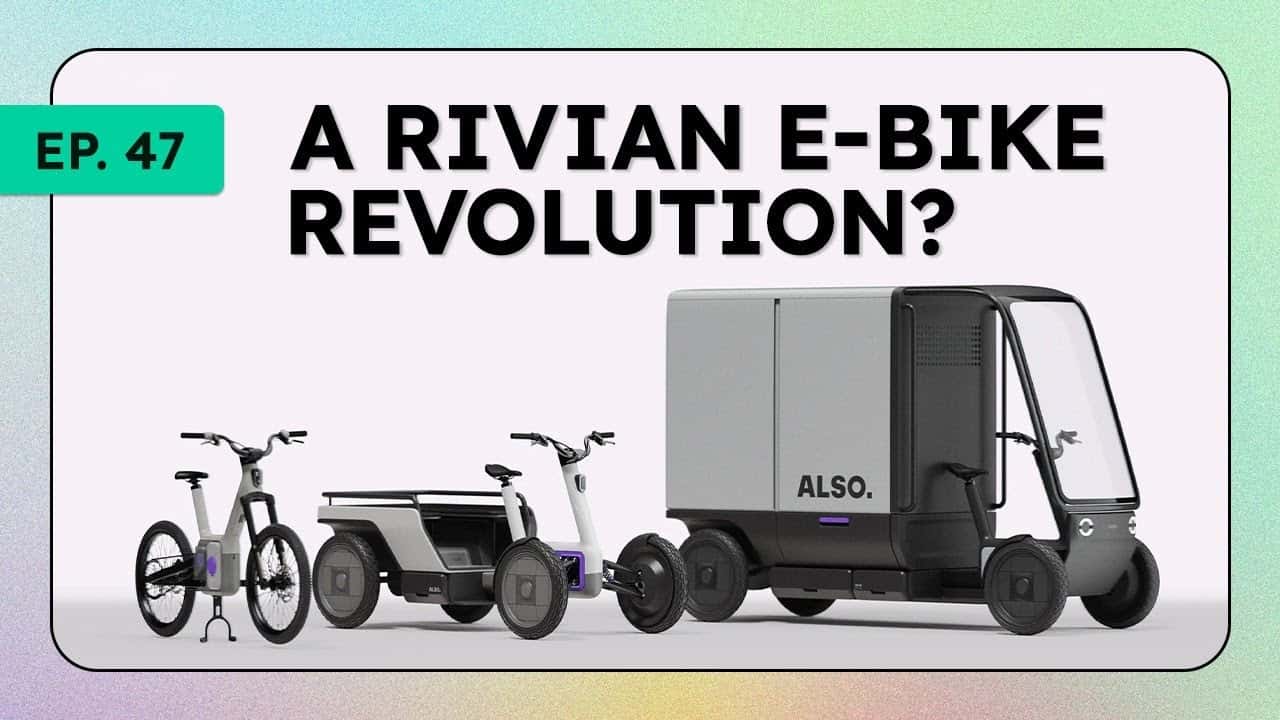
For almost as long as I’ve been covering the auto industry, I’ve heard these companies make big claims about “mobility.” It’s the idea that someday, they’ll need to move beyond simply building cars to find new and innovative ways to help people get around.
Yet aside from the occasional concept car, or maybe sticking their logo on someone else’s e-bike, this has so far just been a lot of noise—and press releases. Carmakers may talk a big game, but they aren’t very comfortable with moving outside their lanes.
That’s why I find Rivian’s new spinoff Also to be so impressive. Rivian started devising ways to make better electric delivery vehicles for Amazon, and then it decided that maybe anyone would want to buy this stuff. Now it’s spinning out a separate company, and so far, the launch products seem quite impressive.
We’re digging into the future on several fronts with this week’s Plugged-In Podcast. Yes, even more so than usual.
I’m also here to give you a rundown of General Motors’ big announcements at its GM Forward event in New York this week. That included eyes-off Super Cruise and Escalade IQs packed with LIDAR, but that’s just the tip of the iceberg. Tune in to hear more.
And then we cap off with the main event, which is an interview with a company I find to be extremely innovative in the most traditional sector of all: making gas engines. Yes, really.
We don’t often cover those here on InsideEVs, for obvious reasons. But Horse Powertrain is a company that was founded on the belief that if gas engines are sticking around for a while—and the latest signs indicate they will be—then they need to be better. Smaller, cleaner, leaner and much more efficient. And here to aid a more electric future, not compete with it.
Matias Giannini is our guest this week and he’s the CEO of this company. It’s a joint venture between Renault and China’s Geely Group, so between the two, technically, its engines are already on the road. But the current stuff is just the start. The future will be even smaller units like four-cylinder and three-cylinder engines, designed from the ground up to be better on emissions than what’s on the road now.
And here’s the important part: Horse Powertrain is working on gas engines designed to work better with hybrids, plug-in hybrids and extended-range EVs.
“There’s so much effort that has been put [into EVs] in the last five years and I’m very grateful for that,” Giannini, a veteran of Continental and another Tier-1 supplier, told me. “I was part of that journey as well on the electrification side, when many did not believe that EVs were going to be where they are today.”
He added, “But at the same time, nothing was done on hybrids. And you see a lot of cars today that had state-of-the-art engines in the past, but are running on architectures that are 10 or 15 years old.”
I think he’s right. After all, if gas engines have to stick around and hybrids and EREVs will see a lot of growth in the years to come, those need to be as environmentally friendly as they can be. Giannini said he’s confident the future will be electric—he just wants Horse Powertrain to help these companies get there. We had a fascinating chat, and I hope even the EV die-hards will appreciate what he has to say.
Our show drops every Friday and is available on Spotify, Apple Music, YouTube and wherever else you get your podcasts. And let us know: Who else do you want to see interviewed on the show? What questions can we answer about the EV world? We love to hear from you, so hit us up.
Contact the author: patrick.george@insideevs.com

